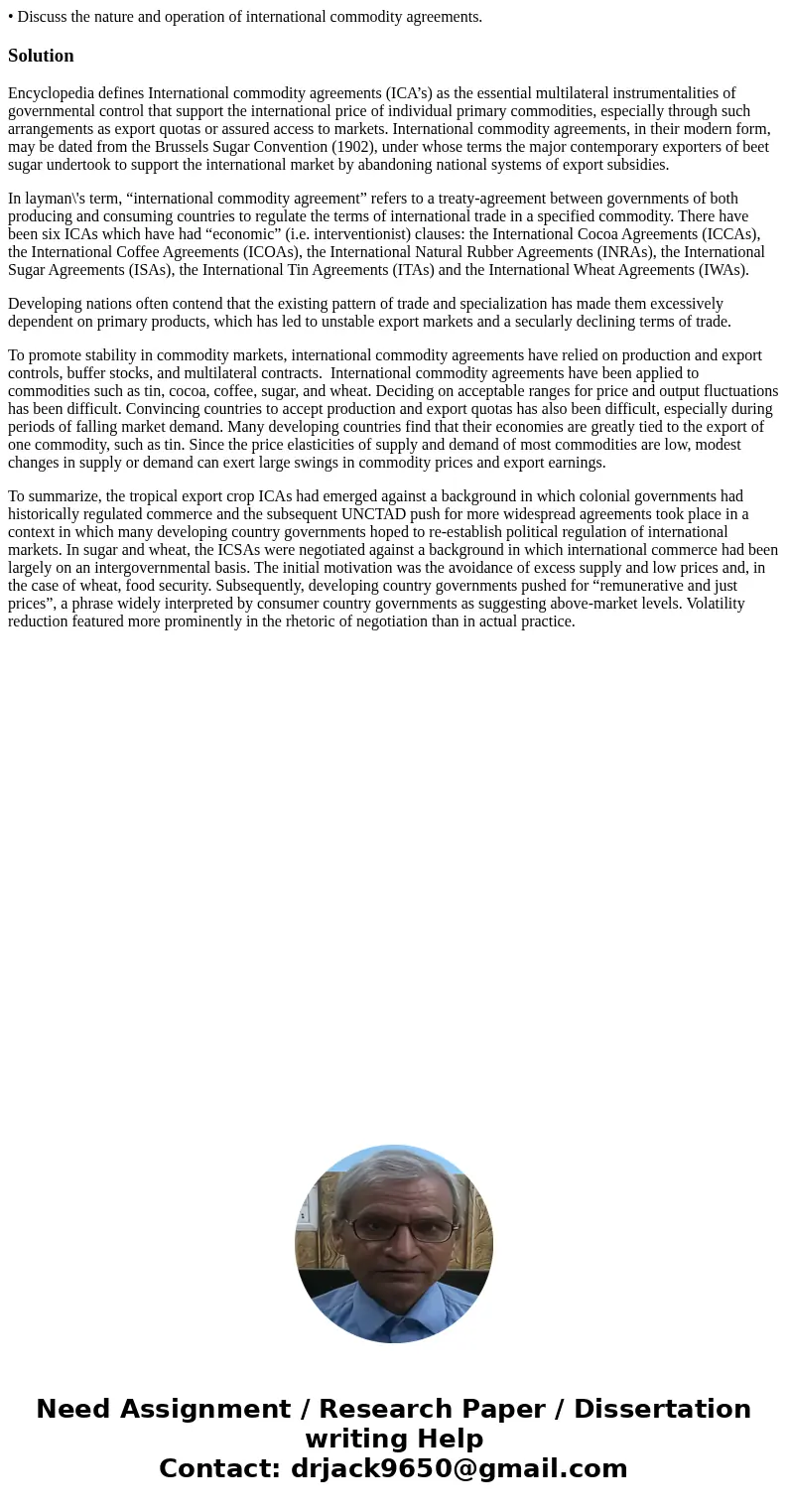Discuss the nature and operation of international commodity
Solution
Encyclopedia defines International commodity agreements (ICA’s) as the essential multilateral instrumentalities of governmental control that support the international price of individual primary commodities, especially through such arrangements as export quotas or assured access to markets. International commodity agreements, in their modern form, may be dated from the Brussels Sugar Convention (1902), under whose terms the major contemporary exporters of beet sugar undertook to support the international market by abandoning national systems of export subsidies.
In layman\'s term, “international commodity agreement” refers to a treaty-agreement between governments of both producing and consuming countries to regulate the terms of international trade in a specified commodity. There have been six ICAs which have had “economic” (i.e. interventionist) clauses: the International Cocoa Agreements (ICCAs), the International Coffee Agreements (ICOAs), the International Natural Rubber Agreements (INRAs), the International Sugar Agreements (ISAs), the International Tin Agreements (ITAs) and the International Wheat Agreements (IWAs).
Developing nations often contend that the existing pattern of trade and specialization has made them excessively dependent on primary products, which has led to unstable export markets and a secularly declining terms of trade.
To promote stability in commodity markets, international commodity agreements have relied on production and export controls, buffer stocks, and multilateral contracts. International commodity agreements have been applied to commodities such as tin, cocoa, coffee, sugar, and wheat. Deciding on acceptable ranges for price and output fluctuations has been difficult. Convincing countries to accept production and export quotas has also been difficult, especially during periods of falling market demand. Many developing countries find that their economies are greatly tied to the export of one commodity, such as tin. Since the price elasticities of supply and demand of most commodities are low, modest changes in supply or demand can exert large swings in commodity prices and export earnings.
To summarize, the tropical export crop ICAs had emerged against a background in which colonial governments had historically regulated commerce and the subsequent UNCTAD push for more widespread agreements took place in a context in which many developing country governments hoped to re-establish political regulation of international markets. In sugar and wheat, the ICSAs were negotiated against a background in which international commerce had been largely on an intergovernmental basis. The initial motivation was the avoidance of excess supply and low prices and, in the case of wheat, food security. Subsequently, developing country governments pushed for “remunerative and just prices”, a phrase widely interpreted by consumer country governments as suggesting above-market levels. Volatility reduction featured more prominently in the rhetoric of negotiation than in actual practice.

 Homework Sourse
Homework Sourse